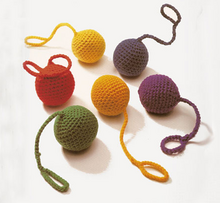User:Jemanly/Early childhood education
| This is the sandbox page where you will draft your initial Wikipedia contribution.
If you're starting a new article, you can develop it here until it's ready to go live. If you're working on improvements to an existing article, copy only one section at a time of the article to this sandbox to work on, and be sure to use an edit summary linking to the article you copied from. Do not copy over the entire article. You can find additional instructions here. Remember to save your work regularly using the "Publish page" button. (It just means 'save'; it will still be in the sandbox.) You can add bold formatting to your additions to differentiate them from existing content. |
Article Draft
[edit]Lead
[edit]Article body
[edit]Theories of childhood development

Froebel
Friedrich Froebel was a German Educator that believed in the idea of children learning through play.[1] Specifically, he said, "play is the highest expression of human development in childhood, for it alone is the free expression of what is in the child’s soul." Froebel believed that teachers should act as a facilitators and supporters for the students's play, rather than an authoritative, disciplinary figure. He created educational open-ended toys that he called "gifts" and "occupations" that were designed to encourage self expression and initiation.[2]
Montessori
Maria Montessori was an Italian physician that, based on her observations of young children in classrooms, developed a method of education that focused on independence. In Montessori education, a typical classroom is made up of students of different ages and curriculum is based on the students' developmental stage, which Montessori called the four planes of development.[3]
Montessori's Four Planes of Development:
- The first plane (birth to age 6): During this stage, children soak up information about the world around them quickly, which is why Montessori refers to it as the "absorbent mind". Physical independence, such as completing tasks independently, is a main focus of the child at this time and children's personalities begin to form and develop.[4]
- The second plane (Ages 6-12): During this stage, children also focus on independence, but intellectual rather than physical.[4] Montessori classrooms use what is called "cosmic education" during this stage, which emphasizes children building on their understanding of the world, their place in it, and how everything is interdependent.[5] Children in this plane also begin to develop abstract and moral thinking.
- The third plane (Ages 12-18): During this stage, adolescents shift to focus on emotional independence and on the self. Moral values, critical thinking, and and self-identity are explored and strengthened.[6]
- The fourth plane (Ages 18-24): During this last stage, focus shifts to financial independence. Young adults in this plane begin to solidify their personal beliefs, identity, and role in the world. [6]
References
[edit]- ^ "Friedrich Froebel | German educator | Britannica". www.britannica.com. Retrieved 2022-12-09.
- ^ Merrick, Beatrice (2021-12-10). "Friedrich Froebel". Early Education. Retrieved 2022-12-09.
- ^ Ruhl, Charlotte. "Montessori Method of Education | Simply Psychology".
{{cite journal}}: Cite journal requires|journal=(help) - ^ a b "Four Planes of Development in a Montessori School".
- ^ Juju (2017-04-12). "Montessori and Cosmic Education". Montessori Academy. Retrieved 2022-12-09.
- ^ a b Montessori, Mansio (2021-04-01). "Montessori Stages of Development: The 4 Planes". Mansio Montessori. Retrieved 2022-12-09.
